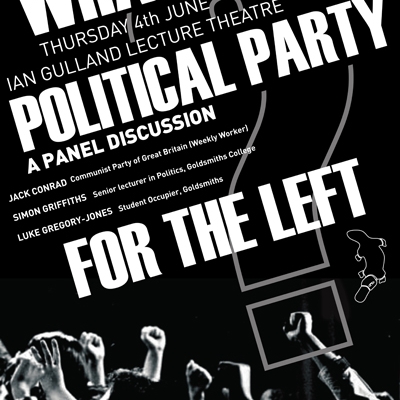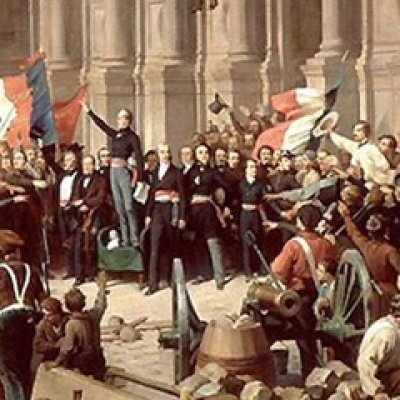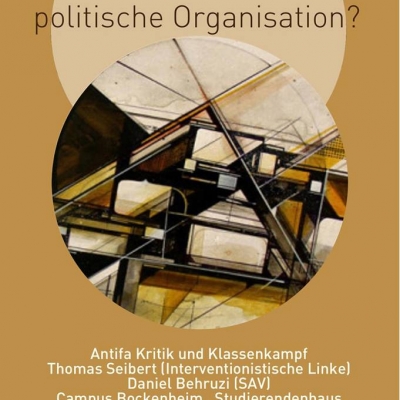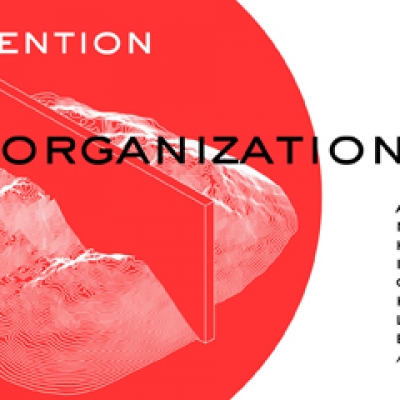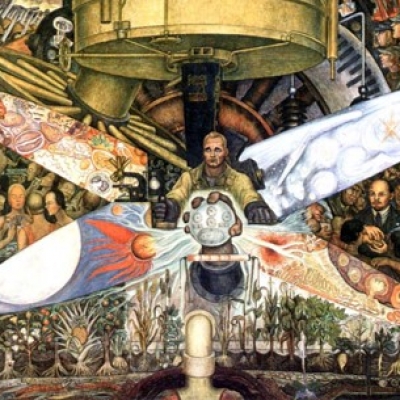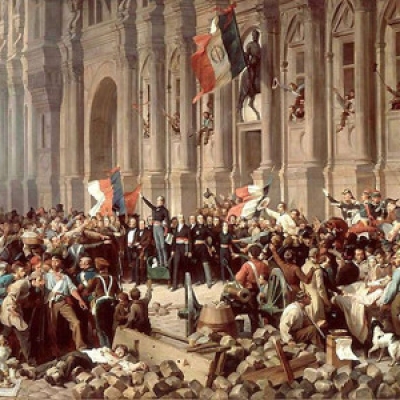What is Political Party for the Left?
In spite of many different political currents and tendencies the most significant question informing the "Left" today is the issue of "political party.” Various "Left unity" initiatives have been taking place in the aftermath of the 2008 economic crisis and subsequent downturn, following Occupy Wall Street and the Arab Spring, alongside continuing "post-political" tendencies inherited from the 1980s-90s, perspectives such as expressed by Hardt and Negri's Empire, Multitude, and Commonwealth, John Holloway's Change the World without Taking Power, the Invisible Committee's The Coming Insurrection, the California student protestors' Communique from an Absent Future, the formation of SYRIZA in Greece, and the new party Podemos in Spain rejecting the organized "Marxist Left" as well as the established labor unions as part of the existing "political caste." In Germany, Die Linke appears poised to break into high political office. At the same time, there has been a growing crisis of the largest "orthodox Marxist" ("Trotskyist") political organizations in the Anglophone and Western European countries, which has been characterized as the "crisis of ('actually existing') Leninism" in the developed capitalist countries. New publications have emerged such as Jacobin magazine, N+1 and Endnotes journals, as a new "millennial Marxism." And there has emerged a related discussion of the legacy of Marxism in principles of political organization going back to the Second International 1889-1914 ("neo-Kautskyism"), for instance in Lars Lih's revisionist history of Lenin and Bolshevism and the Communist Party of Great Britain's member Mike Macnair's book Revolutionary Strategy (2008), the latter occasioned by the formations of the Respect Party in the U.K. and the Nouveau Parti Anticapitaliste in France. Today, perhaps the most significant question facing the "Left" internationally is the issue of "political party," raising a question that goes all the way back to Marx’s dispute with the anarchists in the First International: What would it mean for the Left to take "political action" today?
Today the issue of “political party” seems to generate more problems for the Left than it solves. Formalized political organization would appear indispensable for a long term viewpoint beyond the ebb and flow of movements. Yet the role of the party in sustaining activity and discontents over time — of building towards a revolution — has had, at best an ambivalent legacy, leading as much to rationalizing politically ineffective strategies or giving cover for various forms of opportunism (e.g. reformism, careerism, etc.). Today the idea of political parties as a means for the Left — through which the necessity for social transformation could be developed within society — as opposed to an end in itself is difficult to envision both theoretically and practically. Yet the growing default — politics without parties — seems equally unable to do more than give license to the ebbs and flows through which capitalism changes, but invariably persists. There appears no escape from the question of Political Party for the Left.

